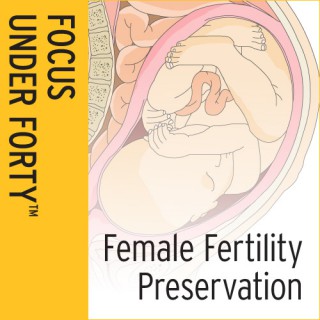
3-Minute Ed Book (2012)
Follow 3-Minute Ed Book (2012)3-minute Ed Book is a collection of podcasts by selected authors from the 2012 ASCO Educational Book. Top oncologists and health care providers summarize their educational articles on cutting-edge topics in oncology research and care.
- Jun 21, 2012 LATEST EPISODE
- infrequent NEW EPISODES
- 2m AVG DURATION
- 13 EPISODES
More podcasts from ASCO University
Latest episodes from 3-Minute Ed Book (2012)

Identification, Management, and Evaluation of Children with Cancer-Predisposition Syndromes
Joshua Schiffman, MD, Medical Director of the High-Risk Pediatric Cancer Clinic at the Huntsman Cancer Institute and Associate Professor at the University of Utah School of Medicine, discusses the ways in which identification of children with cancer-predisposing genetic conditions can guide surveillance and clinical management as well as improve outcomes. His podcast is based on his article coauthored with Sara Knapke, MS, Kristin Zelley, MS, Kim E. Nichols, MD, and Wendy Kohlmann, MS, "Identification, Management, and Evaluation of Children with Cancer-Predisposition Syndromes."

A New Model: Physician-Patient Collaboration in Online Communities and the Clinical Practice of Oncology
Howard (Jack) West, MD, Medical Director of the Thoracic Oncology Program at the Swedish Cancer Institute and Founder of the cancer education nonprofit Global Resource for Advancing Cancer Education, discusses several models of successful online collaboration between patients and health care providers. His podcast is based on his article coauthored with Dave deBronkart and George Demetri, MD, "A New Model: Physician-Patient Collaboration in Online Communities and the Clinical Practice of Oncology."

Oncologists’ Difficulties in Facing and Disclosing Medical Errors: Suggestions for the Clinic
Antonella Surbone, MD, PhD, Adjunct Professor of Medicine at New York University and ASCO Educational Committee Ethics Track Team Leader, highlights key points in literature on disclosing medical errors to patients and offers suggestions for best practices. Her podcast is based on her article, “Oncologists’ Difficulties in Facing and Disclosing Medical Errors: Suggestions for the Clinic.”

Richard Riedel, MD, Assistant Professor in the Division of Medical Oncology at Duke University Medical Center, provides an overview of data supporting the use of targeted therapy for patients with sarcoma. His podcast is based on his article coauthored with Robert Maki, MD, PhD, and Andrew Wagner, MD, PhD, “Targeted Therapy in Sarcoma: Should We Be Lumpers or Splitters.”

Upfront Therapy for Myeloma: Tailoring Therapy across the Disease Spectrum
Vincent Rajkumar, MD, Professor of Medicine at Mayo Clinic, provides an overview of current therapies for multiple myeloma and results from phase III trials. His podcast is based on his article, “Upfront Therapy for Myeloma Tailoring Therapy across the Disease Spectrum.”

Planning for the Future: The Role of Nurse Practitioners and Physician Assistants in Survivorship Care
Mary McCabe, RN, Director of Memorial Sloan-Kettering’s Cancer Survivorship Initiative, highlights the ways in which nurse practitioners and physician assistants can take a role in the care of cancer survivors to improve care. Her podcast is based on her article, “Planning for the Future: The Role of Nurse Practitioners and Physician Assistants in Survivorship Care.”

Short- and Long-term Cardiovascular Complications of Cancer Treatment: Overview for the Practicing Oncologist
Gretchen Kimmick, MD, MS, Associate Professor of Medicine at Duke University Medical Center, recognizes and discusses the high prevalence of cardiovascular disease and cancer, highlighting ways that oncologists and cardiologists are working together to understand and prevent cardiovascular complications of cancer therapies. Her podcast is based on her article coauthored with Chetan Shenoy, MBBS, “Short- and Long-term Cardiovascular Complications of Cancer Treatment: Overview for the Practicing Oncologist.”

Ronan Kelly, MD, MBA, Assistant Professor of Medicine at Sidney Kimmel Comprehensive Cancer Center at Johns Hopkins, offers ways to reduce health care costs and maintain quality in oncology care. His podcast is based on his article coauthored with Thomas Smith, MD, and Bruce Hillner, MD, “Reducing the Cost of Cancer Care: How to Bend the Curve Downward.”

Buoyancy: A Model for Self-Reflection about Stress and Burnout in Oncology Providers
Michael Fisch MD, MPH, Chair of the Department of General Oncology at the University of Texas M. D. Anderson Cancer Center, talks about his buoyancy model and key ways to prevent burnout in oncology providers. His podcast is based on is article, “Buoyancy: A Model for Self-Reflection about Stress and Burnout in Oncology Providers.”

Elana J. Fertig, PhD, Instructor in the Department of Oncology, Biostatistics and Bioinformatics Division, at the Sidney Kimmel Comprehensive Cancer Center at Johns Hopkins, highlights the optimal ways in which genomic and proteomic technologies can be employed to identify accurate biomarker discoveries to improve treatment of head and neck squamous cell carcinoma. Her podcast is based on her article coauthored with Robbert Slebos, PhD, and Christine Chung, MD, “Application of Genomic and Proteomic Technologies in Biomarker Discovery.”

Henry Feldman, MD, Assistant Professor of Medicine at Harvard Medical School at Beth Israel Deaconess Medical Center, talks about the benefits of patient portals, which give patients access to their own medical records, communication with the medical team, and appointment and billing information. His podcast is based on his article coauthored with Elizabeth Rodriguez, RN, “The Future of Oncology Care with Personal Health Records.”

Update of the Oxford Overview: New Insight and Perspectives in the Era of Personalized Medicine.
Harold Burstein, MD, PhD, Associate Professor of Medicine at Harvard Medical School, discusses the recently updated Oxford Overview in light of recent data suggesting that the benefits of modern adjuvant chemotherapy regimens may not be so clear in patients with estrogen receptor-positive breast cancer. His podcast is based on his article coauthored with Kathleen Pritchard, MD, and Jonas Bergh, MD, PhD, “Update of the Oxford Overview: New Insight and Perspectives in the Era of Personalized Medicine.”

Prognostic, Predictive, and Surrogate Factors for Individualizing Treatment for Men with Castration-Resistant Prostate Cancer.
Andrew J. Armstrong, MD, Associate Professor of Medicine and Surgery, Duke Cancer Institute and Medical Center, highlights existing and potential biomarkers in castration-resistant prostate cancer. His podcast is based on his article, “Prognostic, Predictive, and Surrogate Factors for Individualizing Treatment for Men with Castration-Resistant Prostate Cancer.”

















